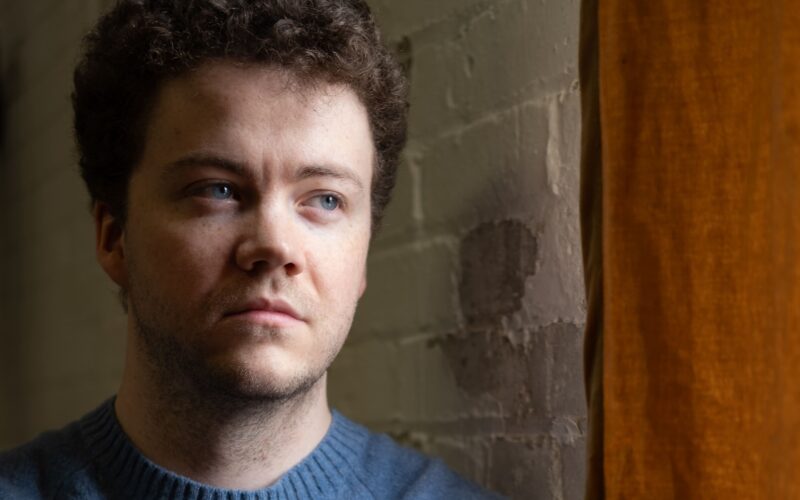“I think it’s something screenwriters need to think carefully about,” Ingoldsby says when discussing the waning attention span of viewers. “There’s more competition for audiences’ attention than ever before. And if film isn’t giving them what they want, they’ll find it somewhere else.”
Not that he thinks filmmakers should rush to adopt the storytelling style of social media, however. “There’s obviously a danger in overlearning the lessons of short-form content’s success,” he says. “Film is unique. No one wants it to become a pale imitation of something people can already get on their phones for free.”
His solution is simple. Adapt to modern attention spans, while simultaneously playing to long-form narrative’s strengths. “Films can keep up with the ‘TikTok’ era through tight storytelling,” he explains, “lean into what film does best – character-driven stories, big emotional arcs, striking visuals – while recognizing that audiences’ tolerance for filler is diminishing.”
Rather than dismiss short-form content, Ingoldsby’s perspective is partly shaped by having previously written for Instagram and TikTok. Collectively, his videos have racked up tens of millions of views online. “It’s a different kind of discipline, writing for a medium that requires you to hook viewers in two seconds or less,” he says. “It taught me that audiences are so much more sophisticated than they’re given credit for – you can fire off a lot of information in a short space of time, and they’ll actively keep up.”
The centrality he places on audience experience also stems from long hours spent working in film and TV development. “I started out as an intern reading scripts. And when that’s your job, you’re just praying that the next script you read won’t feel like a waste of time, because the reality is, a lot of them do. So when it came to my own writing, it was essential to me that the reader – whether it’s an intern, exec, actor, whoever – would feel rewarded for the time they’d spent with my work.”
Borrowing from the energy of social media, he utilizes fast-paced opening scenes, with rapid-fire dialogue that immerses his audience and captures their attention. “With a movie, you’ve got a lot more than two seconds to hook a viewer. But the days of having ten minutes to win them over are gone. That first page really needs to sing.”
Just as important, Ingoldsby says, is maintaining dynamic pacing and information-rich storytelling. “Every line I write serves a purpose – it’s building tension, enhancing emotion, or pushing the story’s theme forward. Every moment should feel essential.” If the opening hook functions as a contract with the audience that promises future entertainment, he argues, the rest of the script must make good on that promise.
His own career is a testament to the success of this ethos. Paul’s work on Son, which took home awards at the Dublin International Film Festival and the Irish Film and Television Awards, demonstrates his ability to balance expansive storytelling with tight scripting. The film’s success extended across Europe, earning accolades at prestigious festivals including the Silver Raven at the Brussels International Festival of Fantasy Film, and the Jury Prize at Spain’s Festival de Cinema de Terror de Sabadell. It’s currently streaming on Apple TV and Prime Video.
Similarly, The Vanishing Triangle, another project in which Paul played a central role in its development, earned strong reviews upon its premiere on Sundance Now. He attributes the show’s success to its brave script, which took on the real-life case of multiple women who vanished in 1990s rural Ireland, and the high-level individual performances which brought it to life.
Additionally, his writing on Analytica has been hailed as “artistically, culturally, and politically significant” by the Academy of Motion Picture Arts and Sciences’ prestigious Nicholl Fellowship. Meanwhile his latest project Leech, a thriller feature he describes as “living somewhere between White Lotus and Get Out,” was recently optioned.
The writer’s sharp storytelling instincts have also contributed to his inclusion in projects currently streaming on major platforms. Having the chance to collaborate with talented filmmakers on films such as The Good Mother, available on Hulu and Apple TV, has opened doors for his work to be appreciated on a wider level.
As cinema moves forward during this exciting time of innovation, it is writers like Paul Ingoldsby who are at the forefront, shaping the artistic vision we see on the big screen. His adaptable nature and unique voice have shone through with his many award-winning projects. While the attention spans of some have waned, this has not stopped Ingoldsby from creating works of art capable of standing the test of time.
Ultimately, it all comes down to storytelling principles, the writer believes. “In some ways, nothing has changed since Aristotle laid it all out in Poetics. People still want an experience that will make them laugh, cry, or reveal something about the human experience. It’s our job as filmmakers to deliver that in a way that speaks to contemporary viewers.”








